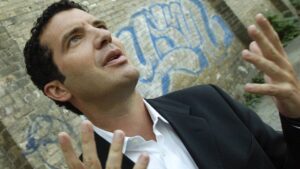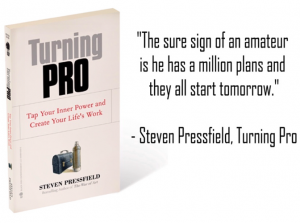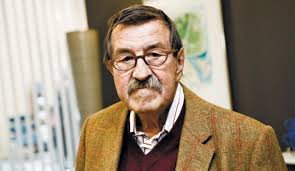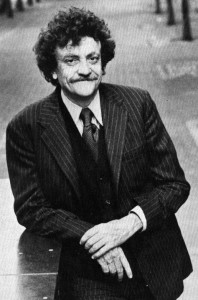
Big house, great sound, respectful audience, super popcorn, and MOVIES! (photo from Playback magazine)
[4-minute read]
Sunday night was Double Date night – no second couple, in this case, but just my bride and I bopping from one Ottawa cultural heartthrob to another. After a light and early supper at home, we were off to the Mighty ByTowne cinema (yes, kids, it’s back!) for a mouth-watering bite of history. Then we hopped on our pony and bustled to the western edge of downtown for a Writers Festival event (yup, pardners, they’re back, too, in Three Entire Dimensions!).
This was my fifth or sixth Return to the ByTowne since its new ownership re-opened that grand old videodrome in the fall. All my fears of it having been blandified (or turned into condos, he shuddered) have been dispelled. Many of the familiar staff faces are back, the popcorn hasn’t been meddled with, and the slate of movies remains rich, diverse, international and occasionally quirky. The Power of the Dog with Cumberbatch and Dunst, C’mon C’mon with Joaquin Phoenix and Gaby Hoffmann, are both still bouncing around my brain days or weeks later. Kurt Vonnegut: Unstuck in Time, strangely current even all these years after his prime and then his passing, had me sobbing repeatedly. (Vonnegut does this to me regularly, but I was still surprised at how hard this loving documentary tribute punched me. Hi ho.)
We were there Sunday for Julia. For anybody over, say, 40, who has been around American television shows, filling in the last name might be easy as omelettes. Julia Child was a towering presence in popular culture, especially from the 1960s through to the ‘90s – and not just because she was 6’3”. Her monumental first book, Mastering the Art of French Cooking, and her subsequent presence as the “French chef” on the Public Broadcasting System (PBS) made her an icon. Julia tells her life story in lavish detail, and with stunning re-creations of many of her most famed recipes, and shows not only her fame and cultural impact – yes, her show was parodied on Saturday Night Live! — but also “how important she was, is, will be”, as one of her admirers puts it.
She was the first person to make cooking on television attractive, in spite of her plainness and age. I had thought Meryl Streep’s voice for her in Julie and Julia (2009, another Child-focused film I hadn’t expected to greatly enjoy, StreepLove aside) was a bit clumsy and overdone — until I saw Julia, that is. I hadn’t connected her to the rise of real attention to good eating in America, but she profoundly influenced young chefs and helped spawn “foodie” culture. The silly, materialistic extremes of that movement don’t undo the value of eating good food, lovingly prepared, which was Child’s essential oeuvre. I also wouldn’t have thought of her as a feminist icon, for example, and in hindsight I’d have been wrong. Julia involves some time travel, painting a vivid (black and white) portrait of the life of one unusual woman in the first half of the 20th century and her flowering, in her mid-50s, as an ambassador of French cuisine. The film is funny, informative and absolutely delicious to look at; the gorgeously framed contemporary food-prep sequences are big-screen-worthy, even for a culinary primitive like me.
We raced from the ByTowne, skipping the end credits (gasp!), to Christchurch (Anglican) Cathedral, the most common recent venue for the live events of the Ottawa International Writers Festival. We went from one local arts treasure to another, and from an American TV icon to a pair of Canadian ones. Linden McIntyre is a Nova Scotian journalist (most famously hosting The Fifth Estate, and then famously retiring to save one younger person’s job at the beloved and beleaguered “Mother Corp”, the Canadian Broadcasting Corporation (CBC). Also a novelist (he won the Giller Prize for The Bishop’s Man), he was our laconic and charming interviewer for a younger Maritime star, Newfoundland’s comedic genius Rick Mercer. Once the “angry young man” of Canadian comedy, He has written something longer (and mildly less angry) than the 90-second “rants” and other satiric slices that have made him beloved across the country. Talking to Canadians is a memoir that my wife and I will read with delight.
You might have heard the echoes of his (in)famous “Talking to Americans” segments in that book title. Among the many irreverent stories he told
at Christchurch Cathedral was of the genesis of that thoroughly Canadian project; it is something of a national sport to enjoy Americans being foolish. (Thinking they can beat us at hockey, f’r’instance.) While Mercer was filming in Washington, D.C., a passing American public servant was savvy enough to determine that the “Canadian Broadcasting Corporation” printed on an equipment case meant that Mercer must be from..…(wait for it)…..“Canada!” It was a gift to a young satirist there on other business: Guv Guy was completely gullible about the absurd name Mercer gave to Canada’s Prime Minister (“Benmergui”, which true CBC-lovers chuckle at as a reference to former radio host Ralph), but was quite prepared to explain the concept of “alphabetical order” on camera when Mercer pretended, to this pompous ignoramus, that Canadians weren’t familiar with this clever new method of organization. From his sudden starburst on the national scene, to his membership in the This Hour Has 22 Minutes¹ crew, to The Rick Mercer Report to his current return to stand-up comedy and whatever comes next, we all got to be spectators as MacIntyre prodded Mercer into story after story, and even his closing punchline “I’ve been glad to be that prick.” (Had to be there, folks!)
Jay and Diana went out on a date, and an icon-fest broke out. And that’s why Ottawa isn’t “the town that fun forgot”! ²






